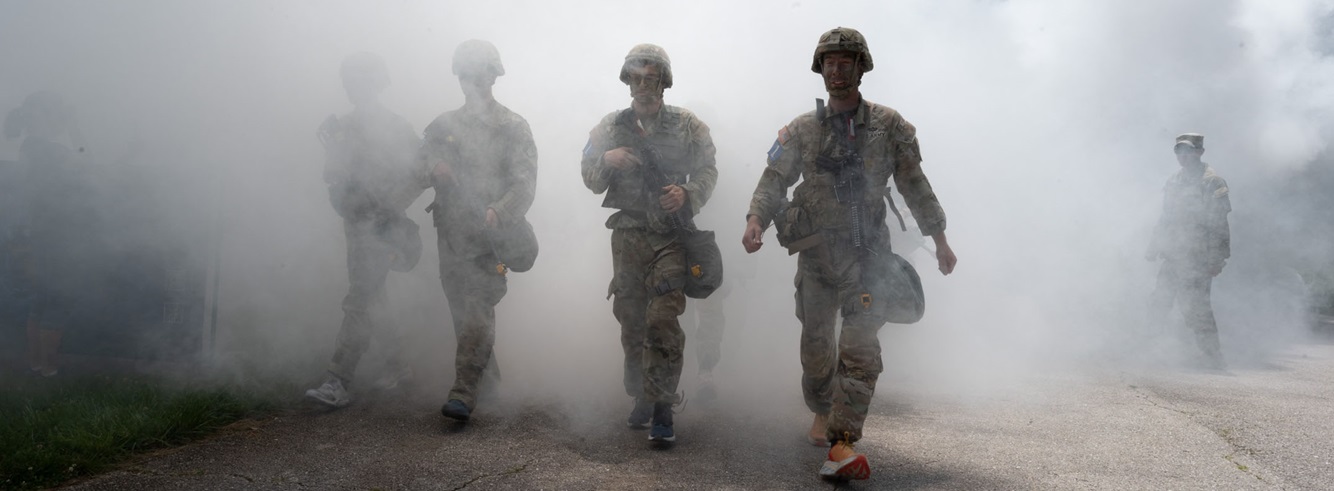currently recruiting at BAMC - San antonio, NMRTC - San Diego, and WPAFB - Dayton, OH. Click here for more information.
For more information about our research program, including current and past studies, please contact AdjustmentDisordersTeam@usuhs.edu.
The Adjustment Disorder (AjD) Research Program, led by Dr. Jouhayna Bajjani-Gebara, is a multi-study program of research that seeks to investigate a military- and diagnosis-specific assessment tool that helps to accurately identify and track the severity of AjD symptoms.
This research program also studies military providers’ perceptions towards AjD along with factors that affect the process by which they assess and manage AjD. Ensuring that this assessment tool is military-centric and calibrated for use by military providers within both deployed and garrison settings is primordial to correctly identify AjD, accurately track its severity, and assess the usefulness of interventions for AjD, which are still lacking.
The goal of this research program is to strengthen military readiness through early detection of AjD and promote early intervention to interrupt its progression into chronic and more severe diseases.
AJD PROGRAM OF STUDY
Recent Projects

This Triservice Nursing Research Program (TSNRP) funded Scoping Review on AjD in active duty military service women was performed in 2021 to identify gaps and guide future research. Results highlighted that the majority of research activity since 2000 focused on AjD risk factors (76%) and impact on military readiness (38%), while only 14% addressed recommendations for treatments, and only 7% focused on health outcomes. Findings from this review also revealed a large discrepancy in how AjD was operationalized across studies, pointing to the urgency of identifying and psychometrically evaluating an AjDspecific and military-centric assessment tool to test future diseasespecific interventions that are still currently lacking.

This Congressionally Directed Medical Research Program (CDMRP) funded project (2020-2024) adapted, pilot-tested, and psychometrically evaluated an AjD-specific instrument (ADNM- 20-Mil) in a large military sample in over a dozen Military Treatment Facilities (MTFs). Healthcare providers’ perceptions, attitudes, and behaviors associated with the diagnosis of AjD and their intent to use the ADNM-20-Mil were also investigated. Recruitment for this project closed in June 2024 and results are expected to be published in early 2025.

This Military Operational Medicine Research Program (MOMRP) funded project (2023 - current) will investigate the validity and reliability of the ADNM-20-Mil in screening for AjD and explore prospective longitudinal diagnostic trajectories for adjustment disorders. The project will also evaluate the ADNM-20- Mil’s sensitivity to change through pilot testing the feasibility and efficacy of an audio-visual device that has been found to help reduce the number of symptoms common to adjustment disorders.
Dr. Bajjani-Gebara has over 20 years of experience in the mental health field. Her clinical work in psychopharmacology and psychotherapy focuses on adults with mental illness, as well as patients and families suffering from psychological distress and adjustment problems. Dr. Bajjani-Gebara’s scholarly work focuses on resilience, self-transcendence, adjustment disorders, and well-being.
Contact Information
Jouhayna Bajjani-Gebara, PhD, MHSC, MSN, PMHNP-BC, Principal Investigator
phone: 301-295-1951
email: AdjustmentDisordersTeam@usuhs.edu

